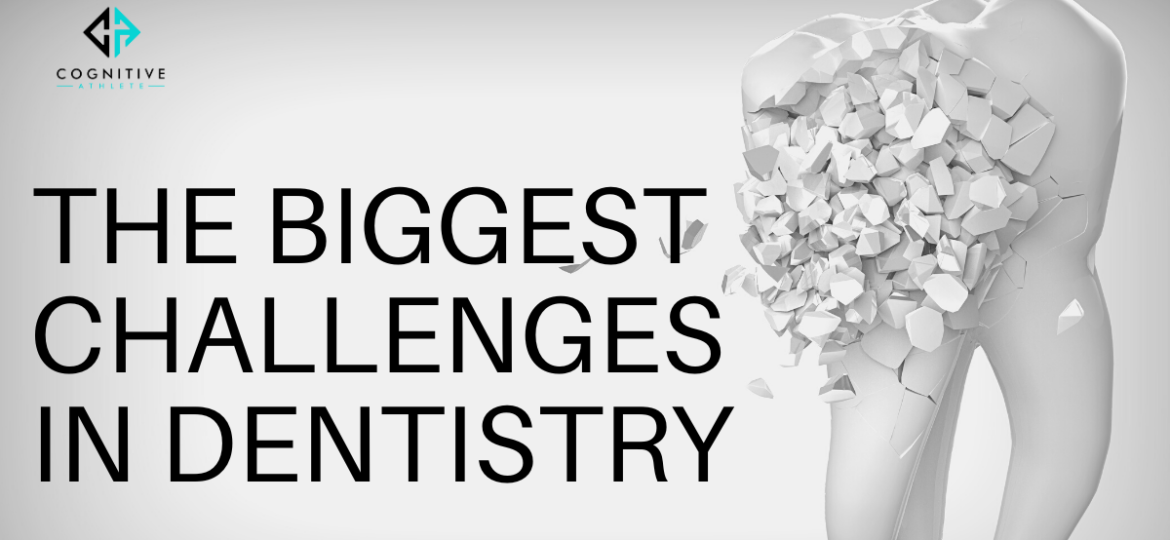
Dentistry is a demanding, challenging and rewarding profession that requires years of training, hard work, and dedication. Despite the rewards of helping patients achieve and maintain healthy smiles, dentists in the UK face several challenges that can impact their personal and professional lives.
From work-life balance to financial pressures, these challenges can affect dentists’ physical and emotional well-being, affecting their ability to provide high-quality care to their patients.
In this blog post, we will explore some of the most significant challenges that dentists face in the UK, including recruitment and retention of staff, work-life balance, professional isolation, the emotional toll of patient care, and financial pressures. We will discuss how these challenges impact dentists’ personal and professional lives and provide practical tips and strategies to help dentists address and overcome these challenges. By understanding and addressing these challenges, dentists can improve their well-being and provide the best possible care to their patients.
High stress and long hours
Firstly, work-life balance is a significant challenge for many dentists in the UK. The profession can be demanding, with extended hours and high-stress levels. In addition, dentists may feel pressure to meet patient expectations and provide the highest quality of care, which can create additional stress and anxiety. This can take a toll on a dentist’s physical and mental health, leading to burnout, depression, and other mental health issues. As such, dentists must prioritise their self-care and find ways to balance their professional and personal lives.
But let’s be fair finding balance is impossible. One minute you have it; the next, you don’t. We much prefer to think about engagement. Do you have the ability to switch on and off? Off is the challenge, but find things that help you get out of your own head. Check out our youtube view of how to have a high performing day here.
Being on your own
Secondly, professional isolation can be challenging for dentists working in small practices or rural areas. Dentistry can be solitary, and dentists may feel disconnected from their peers and professional networks. This can affect motivation and the sense of purpose that comes with practising dentistry, leading to feelings of burnout and disillusionment.
Dentists must maintain connections with peers and participate in professional development opportunities to combat professional isolation. In addition, create support networks outside of the clinic so that dentists can have a clear break from the profession.
Thirdly, the emotional toll of patient care can be challenging for dentists. Dentists often provide care to patients who are in pain or experiencing anxiety, and some procedures can be uncomfortable or even traumatic for patients. This can be emotionally challenging for dentists, who may feel responsible for their patient’s well-being and may experience compassion fatigue or vicarious trauma.
It is important for dentists to prioritise their emotional well-being and seek support when needed. Again, a good support network is required for this. Dentists need to make sure that they are open to challenges and be prepared to talk about them in an open and honest manner.
Finding the right people
Fourthly, recruitment and retention of qualified dental staff is an ongoing challenge in the UK, particularly in remote and rural areas. The dental profession requires highly trained and skilled individuals, and finding and retaining these professionals can be challenging. The high cost of living in some urban areas can also make attracting and retaining staff difficult, leading to a shortage of qualified professionals in some regions.
Understanding the money
Lastly, financial pressures can be a significant challenge for dentists in the UK. The cost of dental school education and practice ownership can be substantial. Many dentists are burdened with student loan debt and the pressure to generate revenue to maintain their practices. This can create financial stress and may limit career options for dentists who want to pursue alternative career paths or take time off to focus on personal or family responsibilities. As such, dentists need to prioritise financial planning and seek support when necessary to manage financial pressures.
Here a the five main challenges that dentists currently face.
We have examined the challenges faced by dentists in the UK, including recruitment and retention of staff, work-life balance, professional isolation, emotional toll of patient care, and financial pressures. These challenges can take a toll on dentists’ physical and emotional well-being, affecting their ability to provide high-quality care to their patients. By understanding and addressing these challenges, dentists can improve their well-being and provide the best possible care to their patients. Understanding the Having an excellent reflective practice (check out Gibb’s reflective cycle here) can help shift from a challenge to an opportunity.
We have provided practical tips and strategies to help dentists overcome these challenges, allowing them to achieve a better work-life balance and thrive in their profession.
If you like to find out more about how Cognitive Athlete support dentists book a call here.
